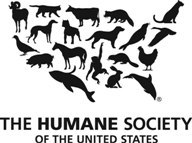Massachusetts Ranks Fourth in Protecting Animals
 |
The Humane Society of the United States has ranked Massachusetts No. 4, tied with Illinios, on how it treats animals.
"Massachusetts has a proud history of animal protection. The commonwealth was the first state in America to pass animal cruelty legislation. We hope that the current state legislature will continue to lead the nation when it comes to animal protection by joining the eight other states that passed farm animal welfare reforms in recent years," said Alexis Fox, Massachusetts state director for the Humane Society of the United States.
The MSPCA, the Massachusetts Society for the Prevention of Cruelty to Animals, was founded in 1868.
The third annual Humane State Rankings rated all 50 states and Washington, D.C., on a wide range of animal protection laws, including animal cruelty codes, equine protection standards, wildlife issues, animals in research and farm animal policy.
Earning the highest scores were California in first and New Jersey and Oregon tied for second place. South Dakota was last with score of 8 out of a possible 66 with Idaho in 50th. Idaho, North Dakota and South Dakota received especially low marks in part because they are the only three states in the country with no felony penalty for egregious acts of animal cruelty.
To see the complete 2011 Humane State Rankings, click here.
Tags: domestic animals, pets,















